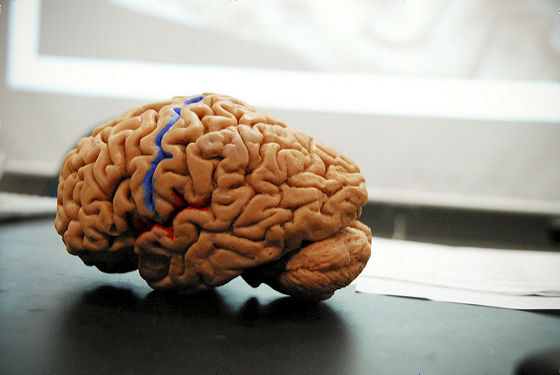The brain is ten times more active than previously thought

ByBryan Jones
Up to now, dendrites of nerve cells have been thought to be a role to passively receive and flow signals, but in recent research dendrites themselves have created "spikes" which are one of electric signals It is confirmed that it is. And in a new study, the amount of spikes produced by dendrites turned out to be ten times the amount of spikes that nerve cell bodies have been thought to produce. There is a possibility that fundamental reversal of common sense of cranial nerve science will occur.
Brain is ten times more active than previously measured | Science Bulletin
http://sciencebulletin.org/archives/11147.html
Brain is 10 times more active than previously measured, UCLA researchers find | UCLA
http://newsroom.ucla.edu/releases/ucla-research-upend-long-held-belief-about-how-neurons-communicate

Nerve cells in the brain have a central nerve cell body and dendrites and axons extending therefrom, the nerve cell body produces an electrical signal called "spike", and functions by exchanging signals with other neurons doing. At this time, dendrites have been activated for a long time by being activated by spikes and only receiving passive signals passively, but recent studies have shown that dendritic cells can only passively signal signals It turned out that they themselves are producing signals.
In a new research conducted by researchers at the University of California, Los Angeles (UCLA), we found that "how dendrites produce spikes in their natural state" and "how often spikes are created" Was revealed. Since the dendrites are delicate, attaching electrodes to the dendrites of moving rats will damage the cells and will not give the correct result. For this reason, it has been considered very difficult to measure electric signals generated by dendrites, but UCLA is not a dendritic itself, but a new method of placing electrodes near dendrites Did.
In common sense until now, it has been thought that nerve cell bodies produce spikes when perception, memory, learning, etc. are done, but in UCLA's research, it is activated in the brains of animals who move freely Observed that dendrites that are producing 10 times the spikes of neuronal cell bodies. The fact that dendrites constitute more than 90% of the nervous tissue and the fact that dendrites produce more spikes than neuronal cell bodies suggests the essence of the information processing of the brain that we currently understand Researchers are talking about fundamentally changing.
Also, the neuron body produces only the spike which is a signal of "0 or 1", but the dendrite produces an electric signal which is different from the spike and the wave size differs and is larger than the spike Thing. Mayank Mehta, Professor of Physics, Astronomy and Neurobiology at UCLA, "We realized that dendrites are processing both digital and analog information, analog information processing is complete It is fundamentally different from a digital computer and resembles a quantum computer. "" The fundamental belief in neuroscience was that "neurons are digital devices." It is whether or not to create a spike However, the results of this study showed that the dendrite was not a complete digital device.With digital processing of 0 or spikes, it is not 0 or 1, analogue It also showed the change, which is an important starting point for neuroscientists believing for 60 years. " According to Professor Mehta, the dendrite has a volume 100 times that of the center of neurons, so if the dendrites are creating spikes, the brain can have 100 times the capacity previously thought It is said that there is sex.

ByDjneight
"Many of the previous models thought that" learning "would occur when two cell bodies were activated at the same time, but our findings show that" learning "involves neurons that input It may mean that dendrites may be activated at the same time, and at that time, another timing, another dendritic dendrite may be activated, even within a single neuron Jason Moore, a researcher, said that there are possibilities for various "learning" methods. Also, Professor Mehta said, "Studies of the function of the brain have been focused on the neuronal cell body, due to technical difficulties, but we have found something hidden behind neurons "Our findings will change our understanding of how nerve cells process information in a wide range".
Related Posts:
in Science, Posted by darkhorse_log







